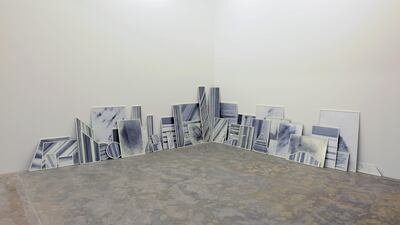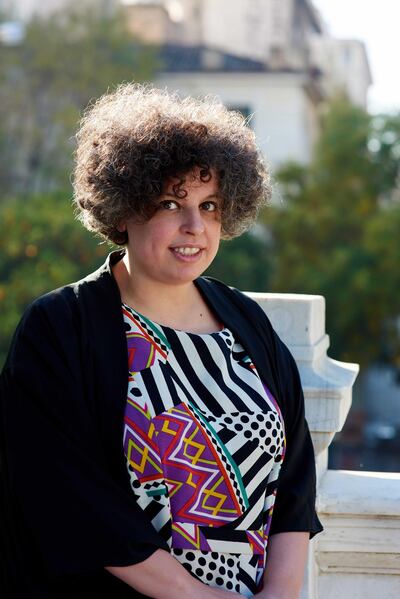Arts organisation Mophradat has announced the second round of its Consortium Commissions programme, which helps Arab artists realise projects to be exhibited at major international institutions. In a new model for support, Mophradat has created a network of institutions that commit to presenting Arab artists. Mophradat funds the making of pieces by artists, who work directly with the curators of two major art institutions, each of which supports the exhibition. During the first programme, Mophradat found that the formula not only worked, but for a few artists, the showing of the one project grew into a larger retrospective of the artist's practice.
"It's gone incredibly well," enthuses Egyptian curator and Mophradat's director Mai Abu ElDahab. "I don't say that just to be positive. There is something in-built in this programme that makes sure that everyone's interests are taken into consideration – what are the institutional interests, what are the artist's interests, what are Mophradat's interests? – and it is balanced in a way that everyone is just responsible for their part of the project."
The programme aims to raise the visibility of Arab musicians and artists, in both the visual and performing arts. Those awarded commissions in the 2020-2022 cycle are Haig Aivazian, Inas Halabi, Joe Namy, Lydia Ourahmane, Dina Mimi, Maan Abu Taleb, Makimakkuk and Deena Abdelwahed.
They will be paired with well-regarded institutions such as De Appel in Amsterdam and the Haus der Kulturen der Welt in Berlin.
While funding artists to make projects is common in the art world, it's less so in the music industry, which has a more commercial framework. The Consortium Commissions programme therefore allows musicians to realise a creative project they wouldn't otherwise be able to, which they then exhibit at an art institution.
"There's really exciting stuff coming out of the Arab world, so it's a nice moment for music, but how do you make sure you're not producing an album?" says Abu ElDahab. Tunisian DJ Deena Abdelwahed will work with emerging names such as Muqata'a to produce mainstream club songs in an Arab context.
Palestinian writer Maan Abu Taleb, editor-in-chief of Arab music magazine Ma3azef, will write and stage a play based on the Congress of Arab Music that took place in Cairo in 1932 (titled 1932), which will be staged in Brussels, Lisbon and Munich. The Congress took place during a period of exceptional accomplishment in Arab music, known as the Arab Renaissance, but was never reconvened after its first event. And although it is considered huge in Arab music, it did not involve any Arab musicologists – making it emblematic of the tangled threads of colonialism and identity in Arab culture, which Abu Taleb's work will explore.
The Consortium Commissions is one of a number of initiatives run by Mophradat, which Abu ElDahab took over in 2015. Before that, the organisation focused on Arab performance, existing as the Young Arab Theatre Fund, which Tarek Abou El Fetouh, the arts curator for Dubai Expo 2020, set up in 2004. It's independently funded by organisations such as the Ford Foundation and the Andy Warhol Foundation for the Visual Arts, and runs a number of programmes of research trips, residencies, grants and discursive meetings.
Like the Consortium Commissions, which is only happening for a second time, Mophradat has become quickly successful, partly due to its adaptability. Though it will remain partly based in Brussels, Mophradat is also hoping to establish a permanent space in Athens, which will operate not so much as a straight exhibition site, but as a place for discussion, production, performance and exhibition at once – a changeable suite of functions that Mophradat is calling a "portal" for a generation of artists born in the 1980s and '90s.
"After the past few years of experience, it's become clear to us that the Arab art community has become extremely scattered," Abu ElDahab explains. "People are finding it impossible to work in the Arab world, not in the sense of presenting their work but in how to find a place to think, to collaborate, to meet other people who are dealing with the same sort of complications that they are. So because of the other things that we do, we decided we need a venue that allows people from the Arab world to meet regularly. The intention isn't to have a public space or exhibition venue, but more to have a residency working space that other organisations, as well as us, can use to bring people together."
The organisation is developing plans for its Athens site, and will announce details soon.



